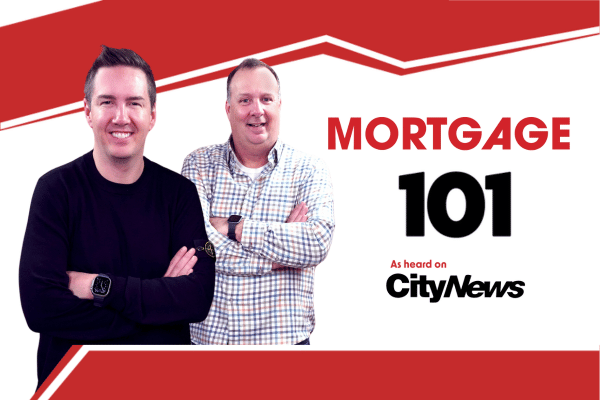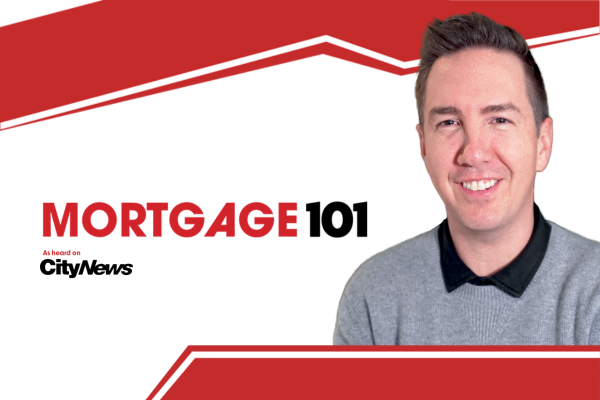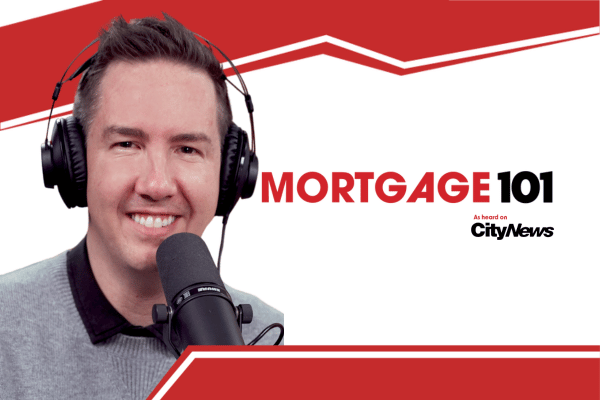Clinton Wilkins and Todd Veinotte are back this Spring to discuss the latest budget updates, including changes in mortgages and housing incentives. Plus, a debate between Beyonce and Dolly Parton country renditions and how the new housing incentives for new builds may expand the construction industry here in Nova Scotia!
Mortgage 101 – you have more assets than you think | November 2022 Part 3
In this episode of Mortgage 101 with Clinton Wilkins and Todd Veinotte, as heard on CityNews 95.7 and CityNews 101.1, the guys talk about assets! Clinton tells Todd that many clients think they don’t have assets since they don’t have a house, but many Canadians have more assets than they think. Watch or read the guy’s discussion to find out if you have more assets than you thought.
Mortgage 101 with Clinton Wilkins & Todd Veinotte: You have more assets than you think
Don’t feel like watching the video? Check out the transcript below.
Transcript:
You have more assets than you think
Todd Veinotte: [00:00:00:02] It is Financial Literacy Month and we’ve already covered quite a bit of territory in the first couple of segments. And we now will cover the fine topic, the lengthy topic of:
Clinton Wilkins: [00:00:14:03] Assets!
Todd Veinotte: [00:00:14:03] Assets! So for those who don’t know what an asset is, you never know. Just go Asset 101.
Clinton Wilkins: [00:00:20:13] Asset 101. Now some people may just honestly, I ask clients all the time, so tell me about your assets, they’re are like “No, don’t have any.”
Todd Veinotte: [00:00:27:21] Exactly.
Clinton Wilkins: [00:00:28:16] “I have no assets.” I hear that actually quite a lot. Don Yeah, and then I start, I’m like, okay, do you want a vehicle? Yes. Do you have savings in the bank? Yes. Do you have an RRSP? Yes. Do you have a TFSA, Any other non-registered investments? Yes.
So trust me, you may not own a home, but you certainly do have some assets. And you know, I think knowing what’s going on with your assets I think is really important. And obviously, right now people that have their money in some financial markets, some consumers this year aren’t doing too well.
Todd Veinotte: [00:01:04:22] No.
Clinton Wilkins: [00:01:05:01] You know, I think going out of 2021, everyone was kind of living the high. Yeah, I even thought to myself, I’m like, you know what? I’m doing pretty good at this. I could probably do this and do this as a career and just like live.
Investments and stocks
Todd Veinotte: [00:01:18:17] Do what as a career?
Clinton Wilkins: [00:01:19:29] Like, trade stocks and stuff. Buy, sell and trade. Trust me, I am not a financial advisor. I’m not a stockbroker. This is not advice, but, I soon learned I would was not that good at this. And I’ll have to be working another couple of years just due to what’s happened here in 2022.
Obviously, there’s been some losses and you know, the markets are not as good as they were even a year ago. So I think, you know, there’s financial assets. So that’s really what’s going on maybe in your bank account, in your investment account, that’s what we consider financial assets.
You know, another big, big asset that clients have, you know, obviously outside of their car, a lot of clients have an insurance policy that has a cash value. You know what? That insurance policy certainly can be catchable if clients want.
And sometimes clients use these insurance policies as an investment vehicle. And depending on, you know, obviously your financial position, sometimes clients can even leverage their insurance and securitise debt against it. So there’s obviously that and you know, the biggest asset that we really talk to customers about every day is their home.
Second homes
And the home is typically the biggest asset in a household, but it’s maybe not the only big asset that clients have. We certainly have a lot of customers that have second homes.
Todd Veinotte: [00:02:46:15] Yeah. Cottages.
Clinton Wilkins: [00:02:47:04] We’re in cottage country here in Nova Scotia. And I’m sure even some of our listeners in Ottawa do have second homes in Nova Scotia. But a lot of customers also own rental properties, and owning rental properties can be a great way at building your assets.
Typically with a rental, you buy it, you have a mortgage and the tenants pay rent and you pay down your mortgage, you know, maybe over 20, 25, 30 years. And that can certainly be a great asset that can appreciate as you pay down the debt. And really someone else is paying down the debt. It can be a really good way at increasing your net worth, somewhat passively.
I know lots of people that have rentals that the tenants don’t even know you’re the owner and they hire like property managers and stuff like that, Todd. It can be really a great way at building assets, you know, over time. I don’t know if there’s any get rich quick scheme, to be honest.
You know I think consumers that bought a house like prior 2019, they got pretty rich on paper, right? Because the property values went up, they paid their mortgages down, and their net worth increased, which means your asset, your net remaining asset, has increased in many, many cases. And I’m talking just across this country.
Cars, boats and other large luxury items
Todd Veinotte: [00:03:58:11] Right, right, right. What about things like boats and stuff like that?
Clinton Wilkins: [00:04:02:20] You know what? They’re all assets. And you know what? Boats and ATVs and motorcycles, they’ve all become more valuable. Cars have become more valuable. Todd, do you ever remember a time that, like, used cars are going up in value? It’s amazing.
Todd Veinotte: [00:04:16:06] Yeah, it is amazing. Yeah.
Clinton Wilkins: [00:04:17:05] You know, my vehicle lease is actually up December 1st. I don’t even know what I’m doing. I’ll probably sell the vehicle or I’m going to extend the lease because I don’t have a new vehicle to buy. There’s not a lot of inventory still with that, but the price of the vehicle is worth more than what the residual is.
That’s not normal. We’re in kind of a reverse territory here where vehicles are worth more, and in some cases, they’re going up in value. It’s the same thing with boats. It’s the same thing with any, like, leisure vehicles and stuff like that. Certainly worth more than they were. And again, we’re in a weird time.
Land ownership
Todd Veinotte: [00:04:57:22] Yeah. What about land? Just straight up lands. Worth some cash?
Clinton Wilkins: [00:05:00:25] I think land’s worth a lot of cash. And depending where the land is, the land really has appreciated as well. Just like, you know, real estate. I kind of consider it land. And, you know, if there’s a property, or like with a structure on it, it’s kind of the same in terms of like a real estate holding. I think land may not appreciate as quickly, but again, it depends where that land is located.
And really, we’re in a game here of supply and demand. And right now in many areas, the demand is higher than the supply, right? And that’s why we’ve seen price increases. Now, I think we would be remiss to say that some people and some of our listeners, you know, in Ottawa and in Ontario, their assets have gone down for their real estate. And I think real estate is selling for less now in Ontario than it was.
Changing house prices in Halifax and Ottawa
I heard kind of at the peak of the price, the average home price in Ottawa was almost $900,000. And now some of the stats that I’ve heard, the average home price is now about $750,000. So, you know, if you bought a home at the peak, maybe it’s worth a little bit less, or if you owned a home before and you’re like, now my home has gone up in value.
Yeah, it’s now maybe gone down a little bit. And I think some consumers from across this country are feeling that and seeing that we’re starting to see that a little bit in the appraisals, but maybe not as much here in Halifax and Atlantic Canada. We’ve never had the boom. You know, we’ve never had this like double-digit growth. The last couple of years, yes, we had a lot of price increases, but our average house price here is still like under $500,000.
Natural disasters can change the value of an asset
Todd Veinotte: [00:06:30:13] What about with, of course, Fiona and other events like that? Might there be some concern that some of this real estate that was, we know that it is coveted waterfront and all of that stuff?
Clinton Wilkins: [00:06:41:12] It happened. Like look at Port aux Basques.
Todd Veinotte: [00:06:42:12] Port aux Basques. So perhaps some people who may have been sitting on what they thought might have been a certain value might not be, based on that. What are your thoughts?
Clinton Wilkins: [00:06:52:02] I would 100% agree with you. I know customers that are on the ocean that now have had to put in huge seawalls and stuff to protect their property. And we’re not talking like a $10,000, $20,000 fix. We’re talking like $100,000 or $200,000 fixes. And in some cases, you know, some consumers and some homeowners have lost their home due to natural disasters like the hurricane. Their homes are not there, or they’ve been destroyed.
I think in a lot of these cases, they’re not covered by insurance. And that’s why provincial governments, federal governments, kind of work together to put together a fund that people can access, you know, emergency relief. But I think that’s certainly something that can have an impact. My grandmother, her family actually owned a hotel in Nova Scotia on the Western shore, and due to erosion, the property isn’t there anymore. And, you know, that was a long time ago. So we’re not talking about like anything that happened recently.
But during the Second World War, they did some, they removed some, like rocks to build something. And then the erosion happened and the property just eventually went away. I mean, it probably didn’t happen in one year, but there certainly are issues around erosion. And I think if you own property that is waterfront, that is certainly a valid concern.
New neighbourhood development can impact assets
Todd Veinotte: [00:08:20:22] Yeah. And I guess the other side of it is, is that what might have been thought useless or not useless, but real estate that didn’t have a whole lot of value, suddenly a development goes near it or whatever it might be, and then a bunch of employment.
Clinton Wilkins: [00:08:33:04] It can be an impact.
Todd Veinotte: [00:08:33:25] So you just don’t know long-term what could happen with assets, right? So that’s something to look at
Clinton Wilkins: [00:08:39:14] I think sometimes that’s what’s important when you’re looking at buying a property as well. There’s that old adage like “buy the worst house in the best neighbourhood,” because then that house is obviously going to appreciate as well. And there was a real estate seminar that I used to kind of put on with a realtor and some other business partners, and they gave a really good adage and there were two homes side by side. They looked identical.
It’s like, what home is worth more money? What home is more valuable? And, you know, it was really zoomed in, you know, a house, a little garage, a little yard. Everything looks great. You zoom out and right in the backyard of this one house was like a commercial development. So that house was not as valuable as the exact same house, but in a more residential area.
Location and municipal amenities
Todd Veinotte: [00:09:29:20] Right. Yeah.
Clinton Wilkins: [00:09:30:14] So, I think buying the worst house on the best street sometimes can be really, really great because you can also improve your home. Really hard to change the location of your home.
Todd Veinotte: [00:09:41:25] Yeah, that’s right.
Clinton Wilkins: [00:09:42:15] The location sometimes can take a really long time to gentrify sometimes. Depending on like what you’re at.
Todd Veinotte: [00:09:47:20] Having amenities like municipal water and all of that stuff. That’s huge isn’t it?
Clinton Wilkins: [00:09:52:04] Huge.
Todd Veinotte: [00:09:52:21] That’s massive. People don’t put enough value in that do they?
Clinton Wilkins: [00:09:55:14] Some people really want to live on acreage. Some people really want to have well and septic. Sometimes those properties are slightly more challenging to finance, just depending on what lender you’re going to. And you also then need to maintain it. Your well may not last forever. Your septic might not last forever, and you need to do maintenance. The obviously downside of being on city services is you need to pay a bill.
Todd Veinotte: [00:10:18:24] You pay it.
Clinton Wilkins: [00:10:19:13] You’ve got to pay for the water, right? And you need to make sure that your connection to the services is good. So there’s pros and cons to both. I would say definitely properties that are more valuable typically are hooked up to city services. Typically, like if you’re looking at two side by side, something on city services would typically be more expensive.
Todd Veinotte: [00:10:42:08] Asphalt, all that stuff paved all that, that’s all part of the asset?
Home improvements
Clinton Wilkins: [00:10:46:03] Yeah, I think those are all improvements that you can also do to your property. You know, and I think that’s a really great way to increase your assets is by increasing the value of your home.
Obviously, the market can be an impact, but I think things like renovations can certainly be a big impact as well. And there’s certainly some renovations, Todd, that consumers do and they like they double their money.
I think there’s some renovations that consumers do that actually reduce the value of their home. So I think that’s something to think about. You know, things like pools don’t always add value. And I think sometimes when people do renovations, sometimes it also, if the quality isn’t as good, then, you know, that can certainly be an impact as well.
If you have any questions, get in touch with us at Clinton Wilkins Mortgage Team! You can call us at (902) 482-2770 or contact us here.


